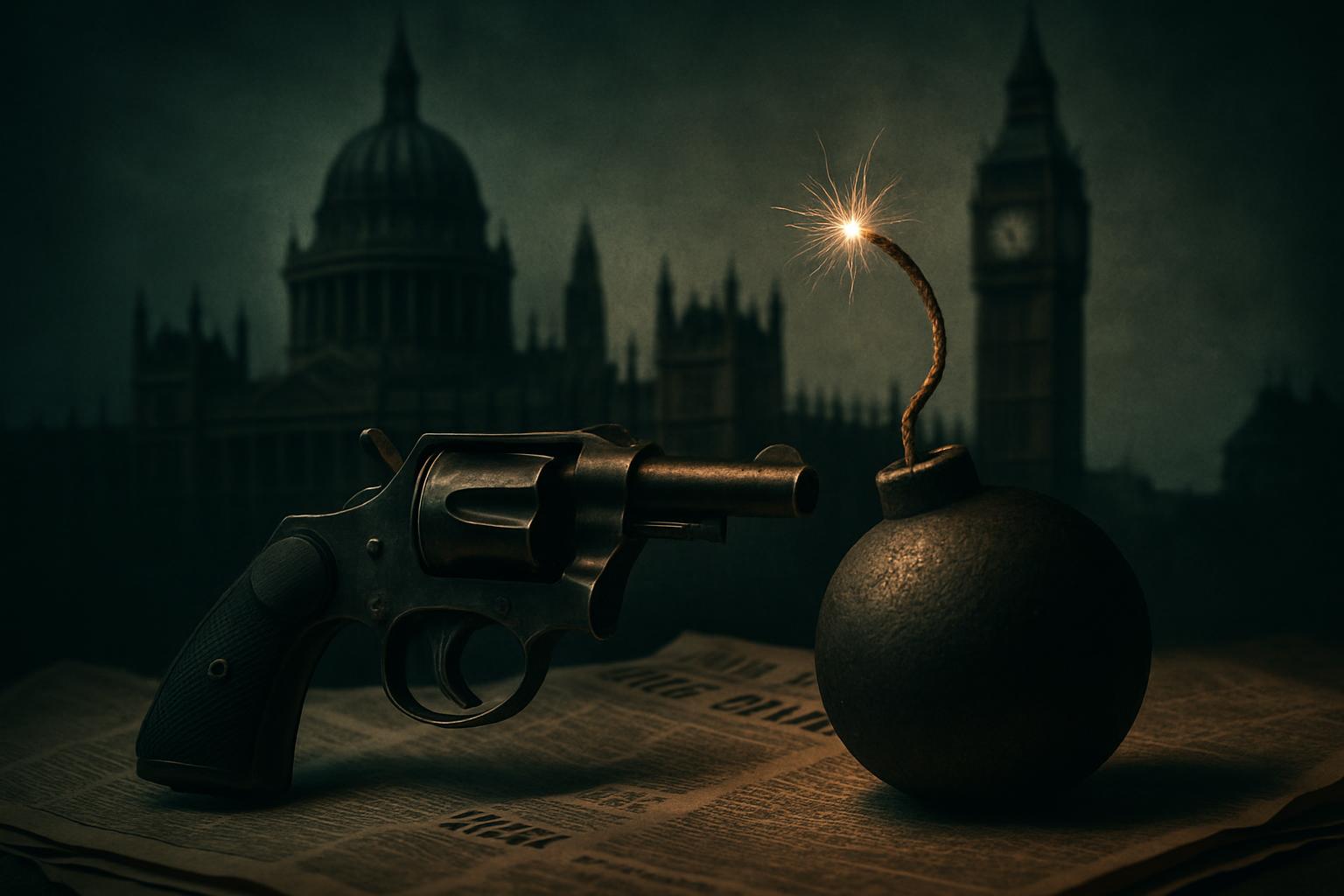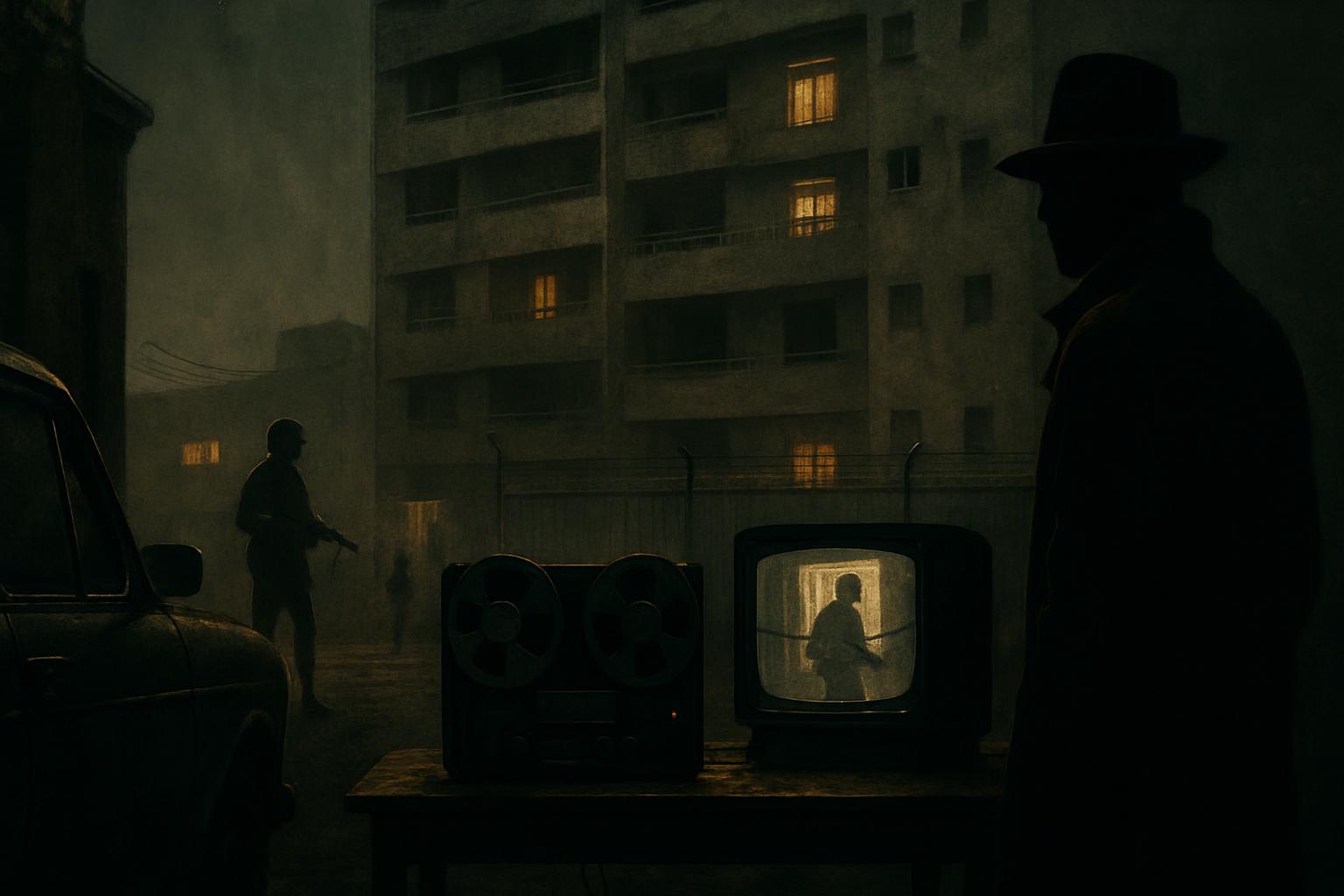Kleber Mendonça Filho’s ‘The Secret Agent’ is a political crime thriller that burns with urgency and empathy. The political crime-thriller genre withers in the wrong hands. Largely set in Recife during the Brazilian military dictatorship, this film might be described as a cat-and-mouse suspense tale crossed with an unsparing study of surveillance, complicity and survival. It’s a must-watch, thanks in large part to Wagner Moura in his most quietly devastating performance yet.
A Political Thriller That Speaks to How Bad Things Really Are
Mendonça Filho frames the narrative amidst intersecting timeframes, allowing memory and inquiry to interrogate one another. Into its 1970s thread (called Saturday in the film) slouches a low-key interloper, Armando (Moura), who assumes an alias and insinuates himself into a Recife apartment complex as Carnival rages outside. Inside, a precarious safety net of neighbors, caregivers and fellow exiles resists the stare of the state, never quite knowing where the trap is laid.

The backdrop is not a backdrop. Brazil’s National Truth Commission recorded hundreds of political killings and disappearances as well as the widespread use of torture during the dictatorship years. That history hums beneath all interactions here: the anxious glances, the veiled conversations, the sudden knock on the door. Mendonça Filho, who caught civic rot in Aquarius and collective resistance in Bacurau, stitches the macro into the micro with the clarity of a journalist and the pulse of a dramatist.
Corruption is personified in a swaggering police chief and his retinue, cruising through Recife as if it were their town to vandalize. The danger is ever-present yet commonplace, and that’s the point. In that current strand, young researchers pore over reel-to-reel recordings and photographs; the film reframes the thriller as a living archive — mirroring the desire of the Inter-American Court of Human Rights for accountability even as whole societies struggle with imperfect memory.
Wagner Moura grounds a human story with quiet power
Moura folds Armando inside out: a man who knows the stakes so well that he barely dares to breathe. His discipline makes the explosions of resistance resonate louder; you taste the calculus of risk in each decision. It’s little wonder the performance has garnered major festival-centric acclaim, matched by Mendonça Filho’s lyrical precision behind the camera. They map together a character arc both timeless (courage versus institutional menace) and bracingly specific to Brazil’s lived history.
The supporting cast lands with texture. A watchful building matriarch, a single mother guarding an occupational past and a couple of eerily collected hitmen sketch an ecosystem in which kindness and coercion ride furiously side by side. The father-in-law’s movie palace — Recife’s legendary Cinema São Luiz — serves as refuge and signal, pulsing with the collective energy of people assembled together to watch a film in an era when gathering itself can be an act of resistance.

Craft that recreates 1970s Recife with immersive detail
Photographed in anamorphic Panavision, the film’s visual language is intoxicating until it quietly becomes menacing. The cinematographer Evgenia Alexandrova bathes Recife in an amber light and then swallows the palette with night, and the production designer Thales Junqueira stages offices and apartments with forensic period detail. The Orelhão, even — Chu Ming Silveira’s egg-shaped public phone — becomes a storytelling device, an illuminating yellow presence that functions as a listening post.
The editors Eduardo Serrano and Matheus Farias do a good job keeping the time-hopping clear but off-balance, challenging us to see patterns the characters can’t see. The score by Mateus Alves and Tomaz Alves Souza goes easy on the grand themes, favoring tight, low hums that keep percussion and drone textures at arm’s length, suggesting enough of the machinery of state. Costume designer Rita Azevedo fights nostalgia — her costumes feel worn-in, lived-in and, importantly, vulnerable.
Mendonça Filho also tucks in some archival images and the soft-silk touch of magical realism, a throbbing mix that he limberly explored in his documentary “Pictures of Ghosts.” The result is the conversation between a city’s memory and its myths — a reclamation of Recife’s streets, its cinemas, its people from history’s impoverished shorthand that so frequently renders them as footnotes.
Politics measured by community and care networks
What sets The Secret Agent a step apart from most of those authoritarian-era thrillers is its preoccupation with caretaking: the informal networks that conceal and feed, smuggle in secret — people, but not ideas; the unobtrusive bureaucrats who hand a file across a counter; the elders who know every name by heart. It is that network of care that is the real counterpower of the film, more believable than any Hollywood conspiracy, more relatable than anyone’s revenge arc.
Verdict and release outlook for The Secret Agent
This is top-tier political cinema — gripping but not sensationalistic, rigorous without didacticism and profoundly humane. Already festooned with the laurels of various film festivals and looming as a limited-release favourite across the UK, Ireland and crucial US cities before wider release at home, The Secret Agent is sure to inspire heated debate far beyond art-house circles. Don’t miss it.

